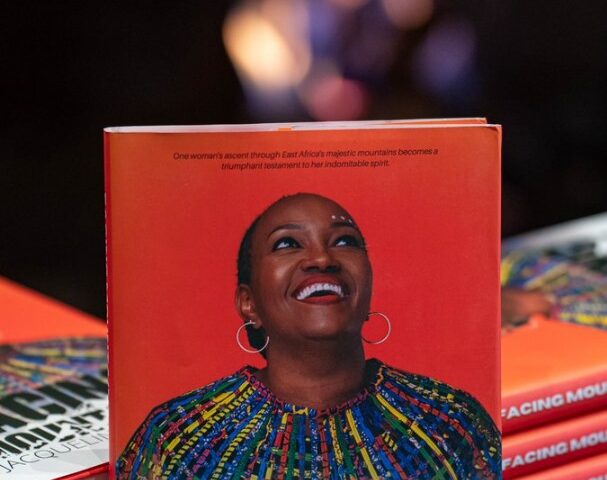
Uganda Baati expands its presence with the 14th showroom in Luwero District
July 10, 2024
The Church’s Silence on Corruption: An Open letter
July 24, 2024Book review: Facing Mountains by Jacqueline Asiimwe

I’ve always been intrigued and fascinated by writers who can captivate an audience not by the words they use but by the manner and style in which they use those words. My A-level Literature teacher used to force me to read strange and out-of-this-world books because he figured they’d help me appreciate different styles of writing.
As a result, I found myself reading strange books like Finnegans Wake a classic novel by Irish writer James Joyce. It is one of the weirdest books I’ve ever read. The book is packed with lots of idiosyncratic language, wild puns, strange mannerisms and bizarre expressions that it is impossible not to get confused at some point. While my younger mind struggled to make sense of the book, I learnt that some of the most remarkable books go against the norm.
Recently, when I heard that Jacqueline Asimwe had written a book Facing Mountains I made a mental note to make sure I attended the book launch so I could get a copy and have it signed. I particularly find joy in having signed books in my collection.
Life happened and I missed the book launch. Instead, I was treated to a load of gorgeous pictures on Instagram about the book launch that I missed. With a bit of bitterness and a hint of jealousy, I consoled myself with the knowledge that perhaps it was because I was far away in Dar-es-Salaam. I therefore planned to get myself a copy of the book as soon as I got back to Kampala.
And when I got back, the first order of business was to get a copy. The plan was to keep it and read it over the weekend but I made the mistake of putting the book on my bedside – something I only do for a book I plan to read that night.
Somewhere in the night, as I counted sheep jumping over a fence, I thought I’d take a peek at the Facing Mountains and probably drift off at some point. I mean, there is no harm in reading a chapter or two and then leaving the rest for the weekend.
That turned out to be a big mistake because once I started reading the book, the next thing I saw was daylight breaking through my window.
Facing Mountains is a fascinating and unique memoir in many ways. Most memoirs are historical accounts told in an orderly and chronological manner. They take you on a journey that starts somewhere in the distant past and culminates in the here and now. But then some memoirs are told in reverse – with the writer taking you on a journey from the here and now sliding backwards towards the beginning of time. This book is neither of the two. The boldness of the writer to tell her story neither from the past to the present nor from the present to the past is intriguing.
As you start reading the book, you are warned about the writer’s defiance of chronology in her storytelling. And as you go deeper into the book it begins to make sense – why the writer is seemingly ‘big-headed’ in her approach. The chapters are interwoven with each other it is almost impossible to tell which should come before the other. And perhaps that is the purpose of it all – to leave the reader wondering which comes before the other. As you shift from one chapter to the other, you get the sense that each chapter could very easily be a book of its own because there is so much depth that is condensed into a few pages it is almost unfair to the reader.
While the writer warns about the condensed nature of some of the stories, I was almost caught unaware in some chapters because the intensity defies the rather short length. One would assume that shorter chapters translate to light content but this book rips up that assumption. Each chapter is tactfully and smartly laden with stories, woven into delicious narration and instigating a craving for more. Each chapter is packed with experiences and lessons you find yourself taking a moment to reflect.
What this achieves are 144 pages of non-stop craving for the reader with the writer sauntering from one chapter to another in a back-and-forth manner. Each chapter has its little mini-story and yet together, they entwine to create what is a remarkable life story.
Jaqueline Asiimwe smartly uses the mountains she has scaled as markers for her story-telling – with each mountain presenting and representing a unique yet challenging view of life, family, work and friends. She ventures into the intricacies of dealing with each mountain while navigating her way through her life story. She opens the door to her life in and outside Uganda and how it shaped her relationships on a personal and professional level.

She shines a light on the struggles of what the world would see as a successful person who has everything in order. She goes ahead to bravely share the worry, fear and angst surrounding her life while toggling back and forth between memories in her life. At some points, you get the sense that she has allowed herself to be vulnerable, something that makes her narration all the more passionate and intense.
As a person who has never and probably never will scale a Mountain, I find it interesting that people dedicate their lives to an activity so rigorous and tedious yet so costly and risky. After reading this book, I still maintain I will not climb a mountain but I can now see where the motivation and zeal come from. The memoir gives the reader an insight into the mind of a mountain climbing addict. It gives you an understanding of what drives people to do some of these otherwise strange things and why they find fulfilment in them. It also allows you to appreciate the preparation and planning that goes into the activity while sharing the real-life experience of
someone who does not necessarily consider herself an accomplished Mountain climber but has scaled more mountains than most people you will encounter.
Anyone who is not an ardent or regular reader of books will find Facing Mountains very easy to sift through because not only is it short and simple, but it also has several interesting and fun titbits that would put a smile on your face and give the occasional ‘WOW, that happened!’ It is one of the easier memoirs to read and as much as the storytelling is stubbornly not chronological, it gives the reader a peek into how life has its highs and lows – much like mountains do, and how together, the highs and lows must be embraced and dealt with carefully.


